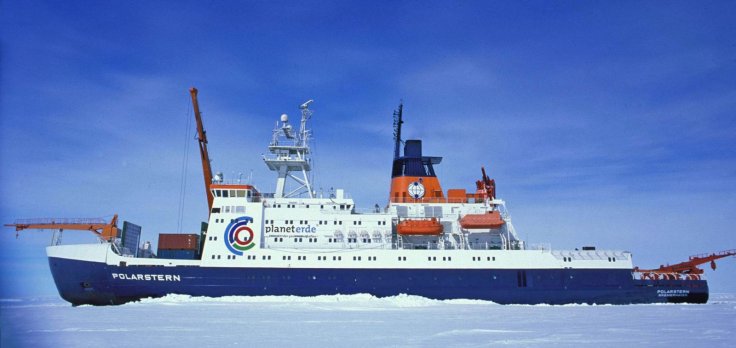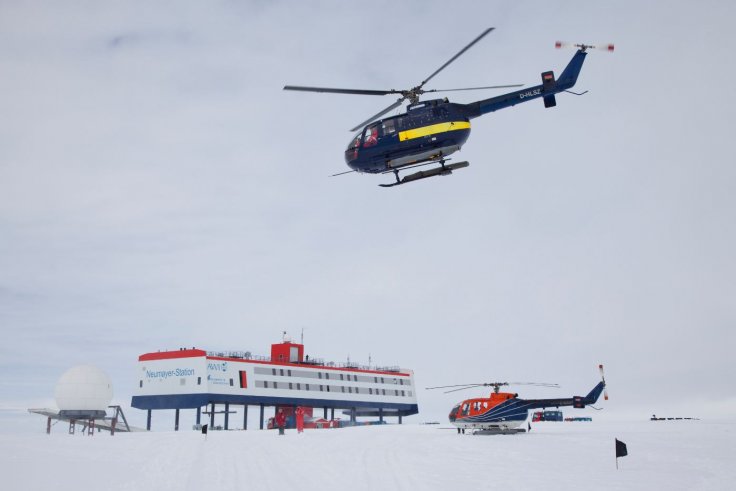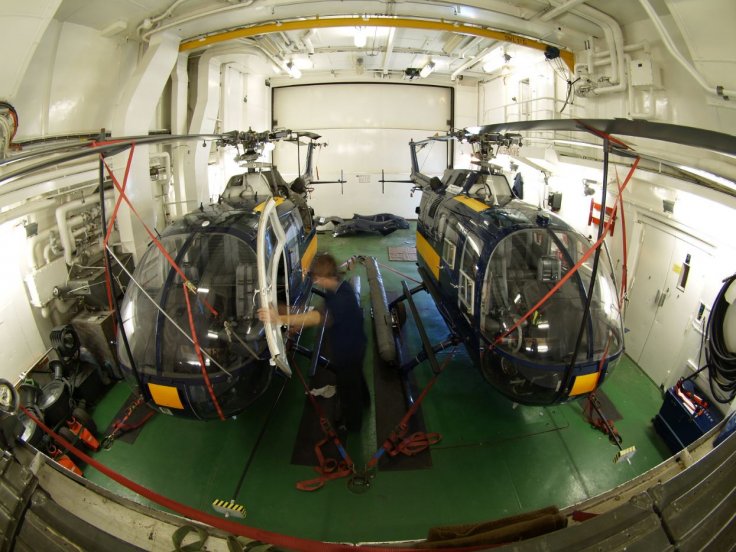The COVID-19 outbreak has disrupted not just the daily lives of millions of people across the world besides causing a global economic upheaval. However, the ramifications further extended to a very important scientific endeavour in the Arctic—the Multidisciplinary Drifting Observatory for the Study of Arctic Climate (MOSAiC).
A member belonging to the vital aircraft unit of the mission has tested positive for the coronavirus. The individual, and nearly 20 members of the aircraft team, had participated in a workshop in Bremerhaven, Germany, on March 5. Other attending members are under home quarantine as per the directives of the German health agencies. Markus Rex, MOSAiC chief scientist, confirmed it in a statement.

Operating aboard the Polarstern, a German research vessel, the research's primary focus is the study of the various kinds of interactions between the atmosphere, the ocean and the sea ice, in order to further the understanding of the complexities of climate change in the Arctic. The vessel has been allowed to freeze with the Arctic ice intentionally since October 2019.
Lessons learnt from Diamond Princess, Grand Princess
Scientists and experts have minced no words, and have vocally criticised the quarantines imposed on the Diamond Princess and the Grand Princess. They suggest that the isolation measures led to the outbreak aboard the vessels due to proximity among the passengers. Working on an ice-encrusted ship in the middle of nowhere poses the same risk. And the MOSAiC team's precautionary measures are in response to disasters on the two cruise ships.
"Suppose someone inadvertently does end up on the ship with this virus, it would just pretty much take the entire ship," said Lynne Talley, a member of the expedition and a physical oceanographer at Scripps Institution of Oceanography in La Jolla, California. With a long incubation period, it would become difficult to identify the infection and impose quarantine measures.

Two rounds of testing
In order to ensure that the returning members of the team do not carry the highly virulent coronavirus, they are subjected to two rounds of testing. The first is when they leave for the mission from their homes. When they are set to depart from Svalbard, Norway to join the research team on Polarstern, the second round of testing is done.
Following their attendance of the workshop in Germany, nearly 20 members of the aircraft team were tested for COVID-19. While one member tested positive, the other members have been placed in quarantine at their homes by the German health authorities.
Delay in aircraft missions due to quarantine
As the quarantined members belong to the aircraft component of the study, airborne aspects of the mission have seen a delay, which were set to begin on March 12. Nevertheless, upon its commencement, a team will gather various kinds of atmospheric data and other crucial information after departing from Svalbard.

An important part of this exercise includes the landing of a few members from the team very close to the ship for refuelling of the craft—a major worry if the team members are infected. Currently, the undermining of the mission's objectives is minimal said Matthew Shupe, mission co-coordinator and an atmospheric scientist at the University of Colorado Boulder.
"We're going to decrease our frequency of catching the events that we want to see," he added while talking about shrinkage in the observation windows due to delays.
Difficulties likely due to outbreak
"All of this is becoming very complicated," said Shupe, explaining the impact of the outbreak on the expedition. With the outbreak across the world intensifying with every passing day, difficulties are bound to head in the study's way too.
However, Rex expressed confidence on preventive measures imposed on the team. "It clearly shows that our concept to minimize the risk is a good one, but it cannot be minimized to zero," he concluded.









